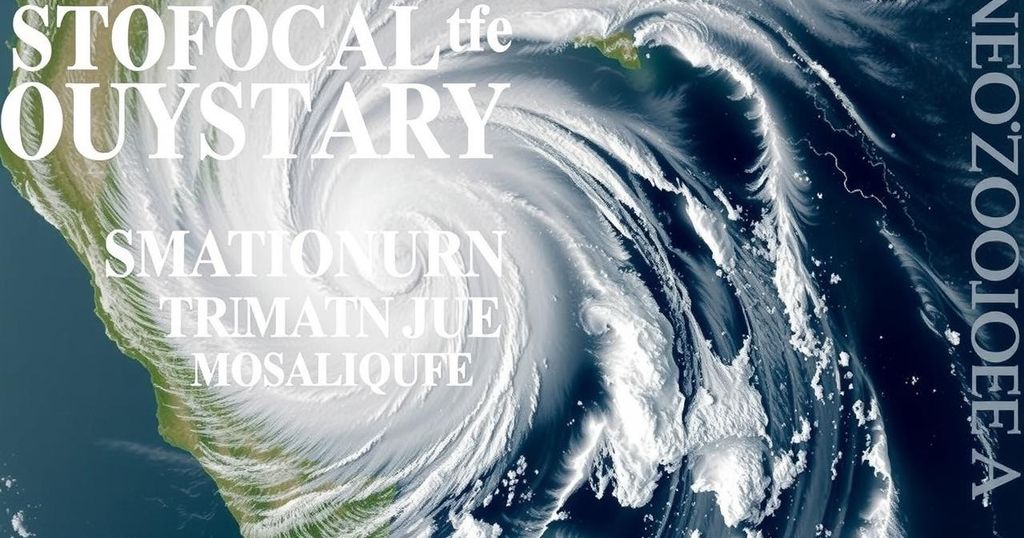Emergency Response to Tropical Cyclone Chido in Mozambique
Tropical Cyclone Chido struck Cabo Delgado province, Mozambique, on December 15, 2024, risking approximately 2 million people. The WFP has initiated emergency food assistance for affected families, with early warning messages having reached over 400,000 individuals. Various districts are currently under assessment to evaluate damages and prepare a response strategy.
On December 15, 2024, Tropical Cyclone Chido made landfall in Mecufi, located in Cabo Delgado province of Mozambique. As a result of this natural disaster, approximately 2 million individuals have been identified as at risk, with 627,000 categorized as being at high risk, and another 1.4 million at moderate risk. Preliminary forecasts from government meteorological services indicate potential severe impacts on critical infrastructure, including river basins, roads, electricity poles, and health facilities, prompting urgent preparedness measures and response strategies.
The districts currently facing the most significant risk include Mecufi, Chiure, Metuge, Pemba, Namuno, Montepuez, and Ancuabe in Cabo Delgado, as well as Memba, Nacaroa, and Erati in the Nampula province. In response, early warning messages and voluntary evacuation advisories commenced on December 8th in Nampula and on December 12th in Pemba, successfully reaching over 400,000 residents across the affected districts, as part of the Anticipatory Action Plan’s implementation.
Within a mere 24 hours following the cyclone’s landfall, the World Food Programme (WFP) has facilitated emergency food assistance to roughly 500 families who were displaced and currently reside in temporary accommodation centers in Pemba. In Mogincual, Nampula, food support was administered in similar temporary facilities, coordinated by the National Institute for Disaster Management (INGD) with backing from the WFP. Moreover, comprehensive multi-sectoral assessments are slated for the Mecufi and Chiure districts in Cabo Delgado to evaluate the situation further and devise appropriate responses.
Tropical cyclones pose a significant risk to communities in Mozambique, particularly in vulnerable regions such as Cabo Delgado and Nampula. The country has a history of experiencing severe weather events that disrupt lives and destroy infrastructure. Cyclone Chido’s unexpected landfall highlights the necessity for preemptive measures and swift response capabilities in anticipation of the widespread impacts of such disasters. Organizations like the World Food Programme play a pivotal role in providing humanitarian assistance during emergencies, aiming to mitigate the adverse effects on those most at risk.
In summary, the arrival of Tropical Cyclone Chido has resulted in substantial risks to millions of individuals in Mozambique, necessitating immediate action from both governmental and international agencies. With effective early warning systems and rapid emergency response efforts, including food assistance from the WFP, there is hope for alleviating the impact on affected communities. Continued assessments will be crucial to understand and address the full extent of the damages caused by the cyclone.
Original Source: reliefweb.int




Post Comment